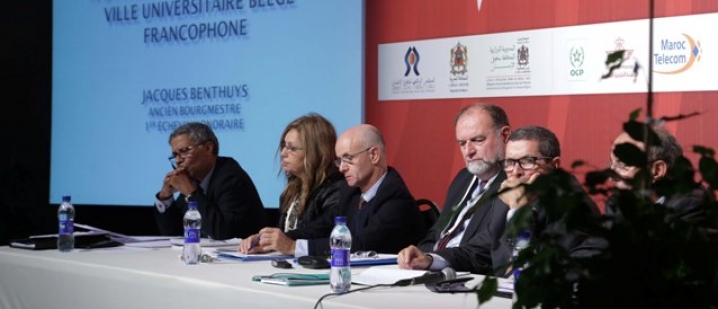Right to the city or how cities can contribute effectively to promoting human rights

The City and human rights and the concept of the right to the city attracted dozens of people to a meeting at the World Human Rights Forum (Marrakesh 2014) that discussed the international standards and local particularities, in this regard, and how to promote and strengthen the role of cities in promoting and defending human rights, since citizens are entitled to dignity, a decent life and to have access to essential services that include education, health, housing, employment, public transportation, security, etc.; human rights in short.
This meeting was an opportunity to exchange on several experiences both in Morocco and abroad. One of these experiences concerned Municipality of Ottignies-Louvain-la-Neuve in Belgium, that adopted a Charter for human rights in the city. Several decisions have been made accordingly, like giving human rights names to streets or monuments, organizing a Freedom Voice festival to promote human rights, educating children about human rights, etc.
The Commune of Tata (Morocco) was another different but significant example as well. With the help of foreign cooperation (Agenda 21), the Commune was able to provide the city with basic infrastructure, including a hospital, a city hall, a bus station, a dispensary, a school, houses for women and girls’ activities, etc.
The participants adopted several recommendations aimed at ensuring the development of cities to respect human rights. They stressed in particular the importance of concrete initiatives to implement the right to the city, like the creation of human rights commissions within the communal councils, the establishment of observatories in the cities, the development of a guide to integrate human rights into public policies, ensuring continuity in the implementation of policies, encouraging regionalization, decentralization and devolution, organizing networking for associations, etc.
This meeting was held by the National Human Rights Council, the United Cities and Local Governments of Africa, Francophone Programme of Support for Local Development (PROFADEL), the Ministry of the Interior, and the Moroccan Association for eco-cities.






















